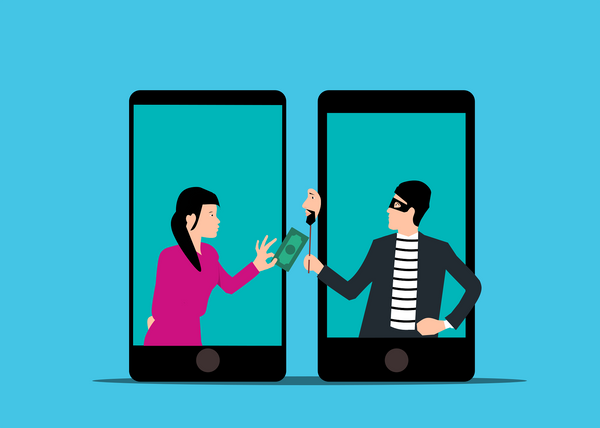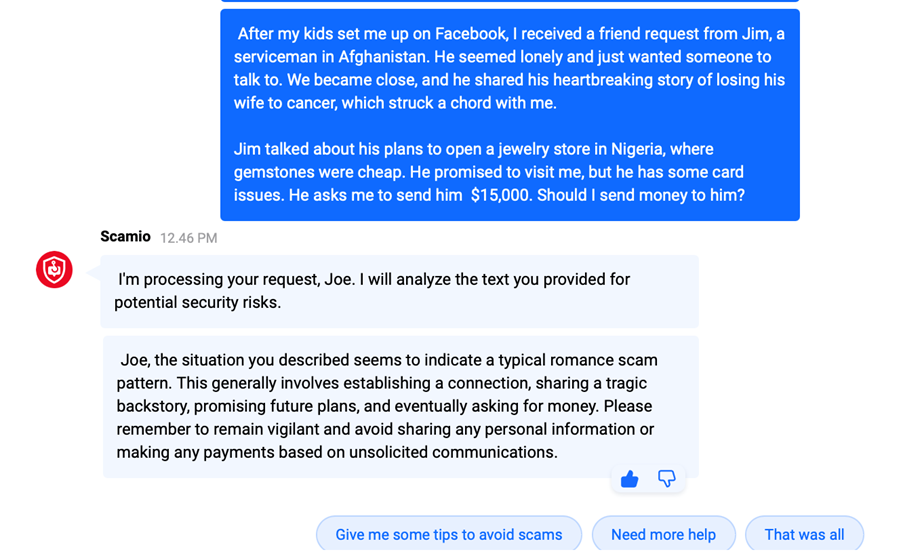Love in the Time of Scams: protect your heart and wallet

When the quest for love takes a digital turn, it's essential to be on the lookout not only for the best matches but also for romance scams.
Masked behind the facade of affection, romance scams have left countless individuals emotionally and financially shattered.
In 2023, in the UK:
- Romance scams rose by 22% compared to the previous year.
- The average amount stolen was £6,937.
- People aged between 55 and 64 were the most likely to fall victim.
(figures from the latest Bank Lloyds report )
In this article, we shed light on scammers' tactics, the impact on victims, and, most importantly, how to protect yourself from becoming a casualty in the sweetheart game. When it comes to these types of scams, prevention is protection. This is because it's highly unlikely that you'll have the scammers' real names, photos, email addresses, phone numbers, or location for the police to catch them.
Love is a beautiful journey, and it's crucial to navigate the online dating landscape with caution and awareness.
Is it love or a scam?
You meet someone special on a dating website or app. Soon, they want to email, call, or message off the platform. They claim it's true love, but there's a catch – they live far away, so you'll keep in touch this way. Then comes the twist – they start asking for money. It could be for a plane ticket to visit you, emergency surgery, or some other urgent need.
If this is how your love story unfolds, It's likely a scam.
How online romance scams work
Romance scammers create fake profiles on dating sites, apps, or popular social media platforms like Instagram or Facebook. Their goal is to start a relationship with you. They'll shower you with affection, saying all the right things to gain your trust and establish an emotional connection they can exploit for profit.
But here's the tricky part – they never want to meet in person or show their face on video calls. They make up all sorts of excuses, like saying they're in the military or doing charity work overseas.
As time passes, the scammer starts making up stories to get money from you. They might claim family emergencies, medical bills, or the need for travel funds to meet in person. At first, it may not be a lot of money, but it keeps increasing. It's a sneaky way of playing with people's feelings and taking their money.
In some cases, scammers promise you money and other goods in exchange for your affection, only to lure you into a scheme where you end up losing more. Read more about the "sugar momma/ daddy" scam on dating platforms here.
Once they've gained your trust, scammers will solicit (more) money, gift cards, or expensive gifts from you. If you become suspicious, they may abruptly delete their accounts and vanish without a trace.
Everyone is a target in the sweetheart scam game
Scammers don't discriminate; they target individuals from all walks of life, regardless of age, education, or gender. However, they often prey on those feeling lonely or vulnerable.
Adults aged 18-59 are 13% more likely to fall victim to a romance scam than adults over 60. Despite this, older adults tend to suffer greater financial losses, with median losses nearly double that of younger victims. ( FTC)
Romance scam statistics reveal that both men and women are susceptible to falling for scammers' schemes. While women file more reports, men report higher losses (Scamwatch).
In the US: In 2022, nearly 70,000 people reported a romance scam, and reported losses hit a staggering $1.3 billion. The median reported loss: $4,400.
A significant portion of these scams originate on social media, with 40% of victims reporting that the initial contact occurred on platforms like Facebook or Instagram. 19% reported that the scam began on a dating website or app. Many said scammers quickly moved the conversation to WhatsApp, Google Chat, or Telegram. (FTC)
A real story
According to Scamwatch, romance scams in Australia accounted for 33% of all reported scams and cost Australians $30.8 million in 2023. Here's one real story in which character's names were changed for protection.
After Georgina's kids set her up on Facebook, she got a friend request from Jim, who claimed to be a serviceman on duty in Afghanistan. Jim said he felt lonely and just wanted some friends to chat with while he was stuck in the middle of nowhere. They became pals, and he shared a sad story about losing his wife to cancer, which reminded Georgina of her own experience.
Jim told Georgina about his plan to open a jewelry store after retiring and how being in Nigeria, close to where gemstones were mined, was an excellent opportunity to buy them cheaply. Their friendship turned into something more, and Jim claimed he was coming to visit Georgina. However, he ran into problems with his bank card in Nigeria and needed money for an export tax on his gemstones.
Georgina sent him $15,000. Things took a turn when Jim's gemstones got seized in Malaysia, and he needed $20,000 to get them released. Georgina borrowed money and sent it to him.
The requests for cash didn't stop, and she ended up sending over $100,000 to cover various fees, including court costs and a so-called Anti-terrorism and Money Laundering certificate.
Even when Georgina ran out of money, the demands kept coming. Feeling lost, she eventually spoke to the police.
What could have made a difference?
I put myself in Georgina's shoes: I imagined being contacted by Jim and faced with his request for money. In this scenario, I used Bitdefender Scamio to see whether sending money to him was a safe decision.

Bitdefender Scamio is free and doesn't require downloading any app or having previous access to a Bitdefender product.
You can access it on any device or operating system via your web browser or Facebook Messenger. Simply describe the scam, upload an image if necessary, and send a link or text.
Scamio will reply to you, saving you a lot of trouble.
Other ways to protect yourself:
- Don't send money or share financial information with people you have never met in real life.
- Refrain from sending private photos to strangers.
- Check if other scam victims have reported their profile or alias. Search their name with the word 'scam,' or reverse search the images on their profile with a search engine like Google. This helps ensure the image is not taken from elsewhere.
- Talk to family and friends if you grow suspicious.
What to do if scammed
Don't blame yourself; it can happen to anyone.
The first step is to break free from the scam and seek support by reaching out to your loved ones, trustworthy third-party organizations, and law enforcement agencies for help. This support network is essential in helping you restart your life and move forward.
Did you know?
Online Romance Scams are one of the most under-reported cybercrimes in the world, with an estimated 7% (possibly lower) of victims reporting the scam to the proper authorities.
If you paid a romance scammer with a gift card, wire transfer, credit or debit card, or cryptocurrency, contact the company or your bank immediately and tell them you paid a scammer. You may want to block your cards or accounts to avoid further losses.
Tell your story, as sharing your experience is a great way to help others.
Report scams to antifraud authorities in your country and notify the social networking site or app where you met the scammer, too.
tags
Author
Cristina is a freelance writer and a mother of two living in Denmark. Her 15 years experience in communication includes developing content for tv, online, mobile apps, and a chatbot.
View all postsRight now Top posts
How to Protect Your WhatsApp from Hackers and Scammers – 8 Key Settings and Best Practices
April 03, 2025
Outpacing Cyberthreats: Bitdefender Together with Scuderia Ferrari HP in 2025
March 12, 2025
Streamjacking Scams On YouTube Leverage CS2 Pro Player Championships to Defraud Gamers
February 20, 2025
How to Identify and Protect Yourself from Gaming Laptop Scams
February 11, 2025
FOLLOW US ON SOCIAL MEDIA
You might also like
Bookmarks







